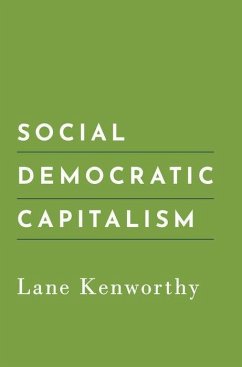What is the configuration of institutions and policies most conducive to human flourishing? The historical and comparative evidence from the world's rich democratic countries suggests that the answer is capitalism, a democratic political system, good elementary and secondary schooling, a big welfare state, employment-conducive public services, and moderate regulation of product and labor markets. This set of policies and institutions, which sociologist Lane Kenworthycalls social democratic capitalism, improves living standards for the least well-off, enhances economic security, and very likely boosts equality of opportunity. And it does so without sacrificing the many other things we want in a good society, from liberty to economic growth and much more. Whilethe Nordic nations have been social democratic capitalism's chief practitioners, there is good reason to think other affluent countries, including the United States, will move in this direction in coming decades.








